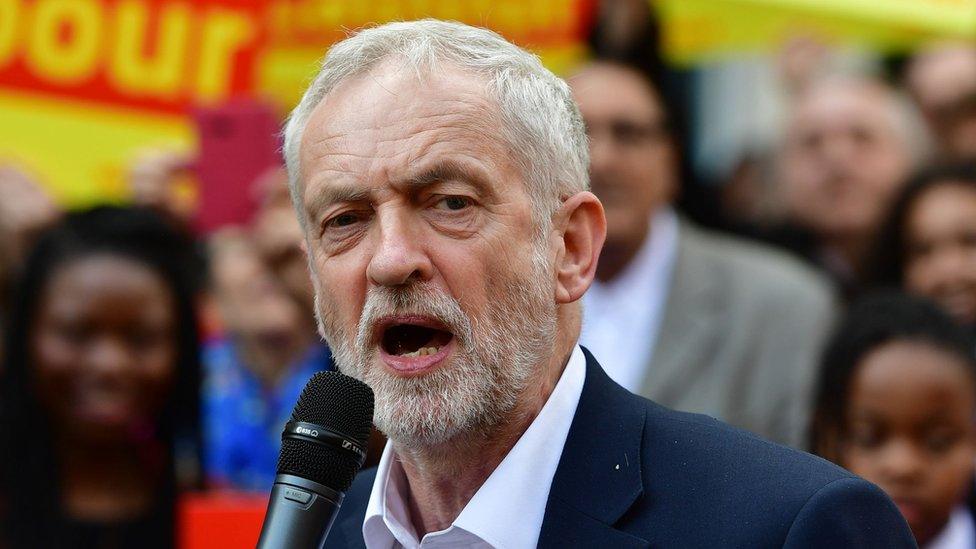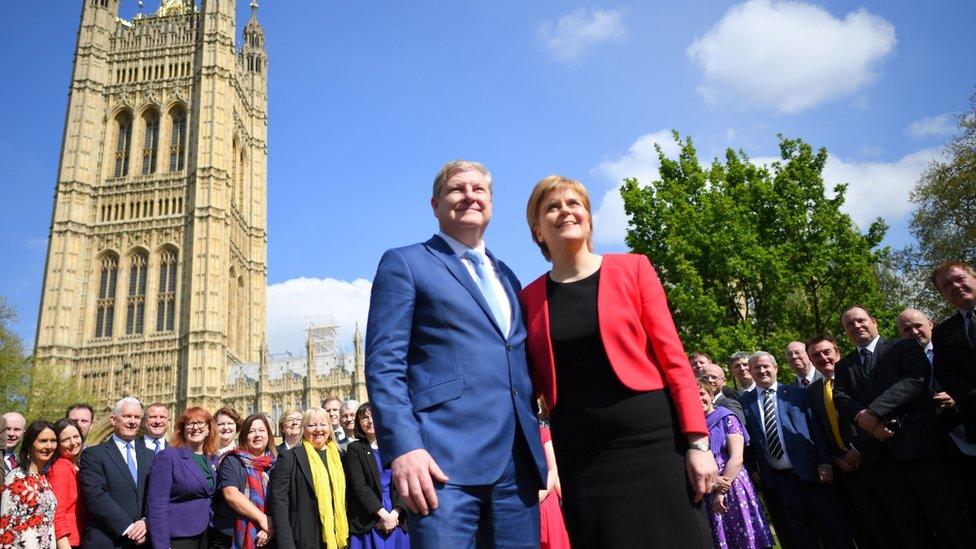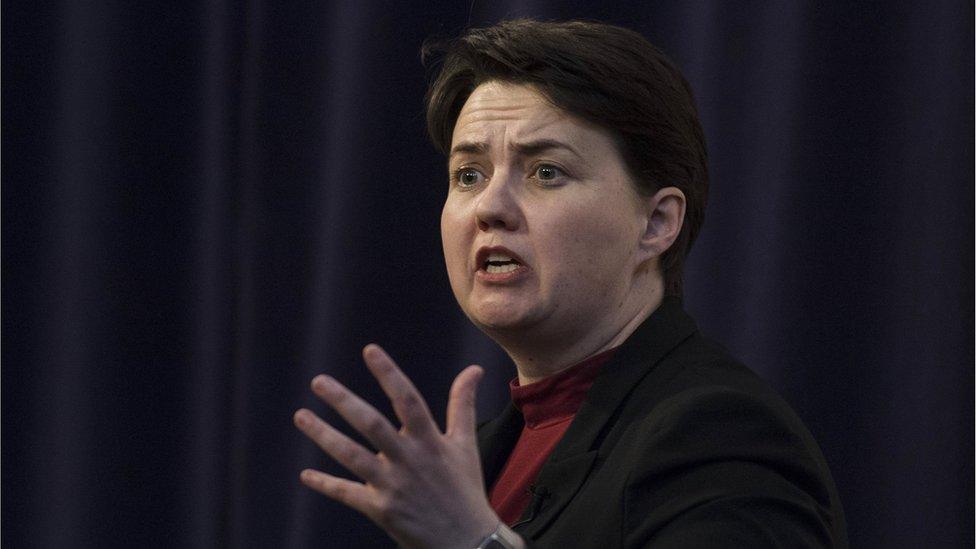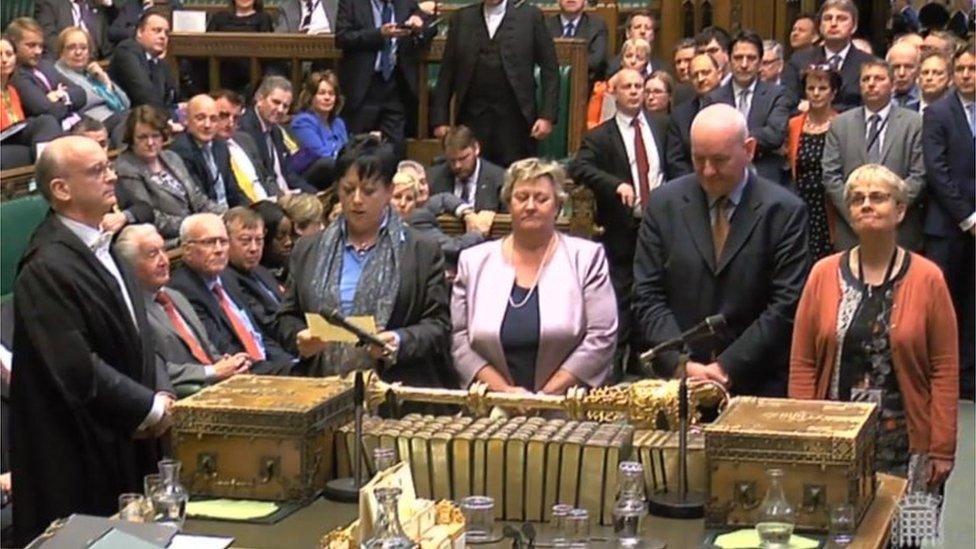Jeremy Corbyn rejects 'progressive alliance' with SNP
- Published
- comments

Jeremy Corbyn has ruled out any post-election coalition with the Scottish National Party.
The SNP has said it would be prepared to work with other parties to keep the Tories out of power.
But the Labour leader said he did not regard the SNP as progressive.
Prime Minister Theresa May has said the choice in the coming election was "strong leadership" from the Tories or a Labour government "propped up" by smaller parties.
Speaking in Westminster earlier Nicola Sturgeon held the door open for a "progressive alliance" to keep Mrs May out of Number 10 if "parliamentary arithmetic" allowed it.

Nicola Sturgeon visited her party's MPs at Westminster ahead of the Commons vote
But she said that - unlike 2015, when she proposed a similar alliance - there was no prospect of Labour winning enough seats to keep the Conservatives out.
"I'm not sure there are many people who think Labour are going to be in a position, on their own or with anybody else, to form a government," she said.
"Only the SNP will stand between Scotland and an increasingly hard line and right wing Tory government."
Emerging from a meeting of Labour's ruling national executive later, Jeremy Corbyn ruled out any deal with the SNP.
'Turbo charged austerity'
He said: "There will be no coalition deal with the SNP and a Labour government.
"The SNP may talk left at Westminster, but in government in Scotland it acts right. A genuinely progressive party would not refuse to introduce a 50p top rate of income tax on the richest.
"The SNP wants to break up the UK; it has no interest in making it work better. Independence would lead to turbo-charged austerity in Scotland - not progressive politics."
Labour was reduced to just one MP in Scotland in 2015, but Mr Corbyn insisted his party could rebuild support.
"Only Labour or the Tories can win this election and voting Labour is the only way to remove Theresa May from office," he said.
Scottish Labour leader Kezia Dugdale, who spoke at the national executive meeting, added: "I told the NEC there is already is a progressive alliance in the UK: it's called the Labour Party.
"The SNP wants to break up the UK - it has no interest in making it work better."

The Scottish Conservative leader Ruth Davidson said her party was the "best bet" for unionist voters seeking to defeat the SNP in the general election.
While she insisted she has never been a "particular proponent" of tactical voting, her party was better-placed than Labour or the Liberal Democrats to take seats from the nationalists, adding there was "no way the SNP is getting 56 this time".
Scottish Liberal Democrat leader Willie Rennie said his party was "relishing the prospect of this election".
He added: "It is a chance to change the direction of the whole of the UK."
And Scottish Greens co-convener Patrick Harvie urged Scottish voters to use the election to "reassert our choice for a fairer and more equal society".
The SNP's MPs abstained in the vote on whether there should be an early election, which was passed by 522 to 13.
The party supports fixed term parliaments, but had said it would not stand in the way of an election.
However, Natalie McGarry and Michelle Thomson - who are both sitting as independents after being suspended from the SNP - voted against an election.
Ms McGarry has been charged with fraud offences relating to a potential financial discrepancy in the accounts of two-pro-independence groups, while Mrs Thomson has been reported to prosecutors after a police investigation into allegations of mortgage fraud.
A decision on whether they will be able to put themselves forward as SNP candidates is expected to be made by the party's National Executive Committee on Saturday.
- Published19 April 2017
